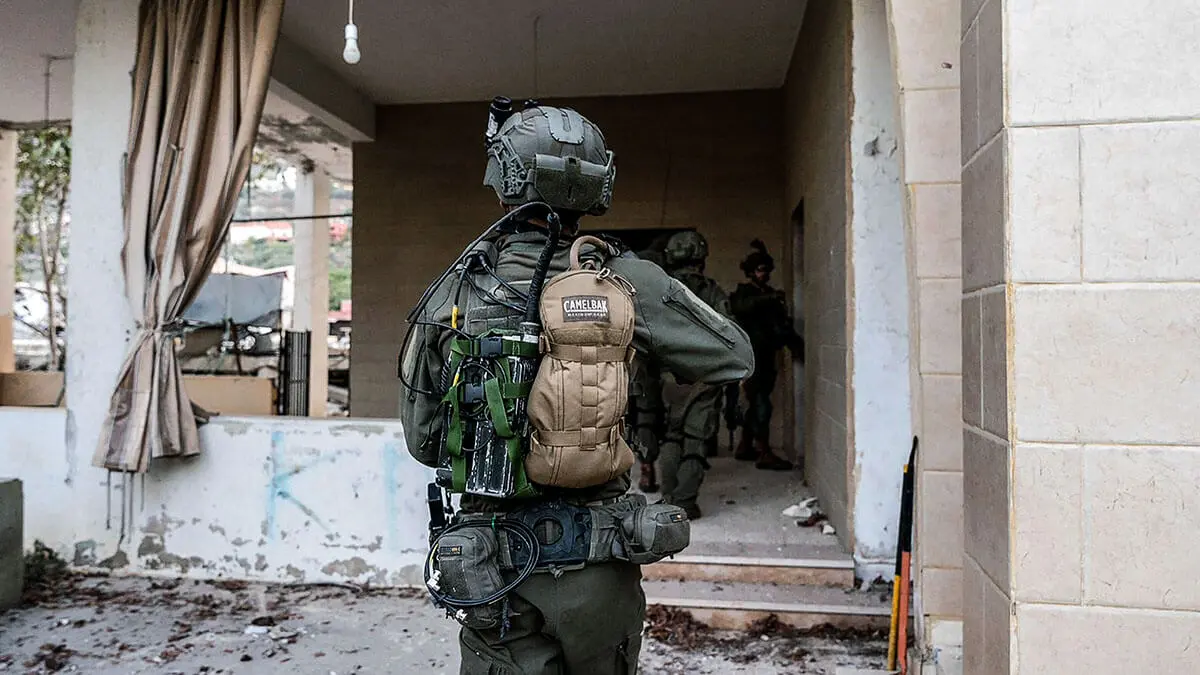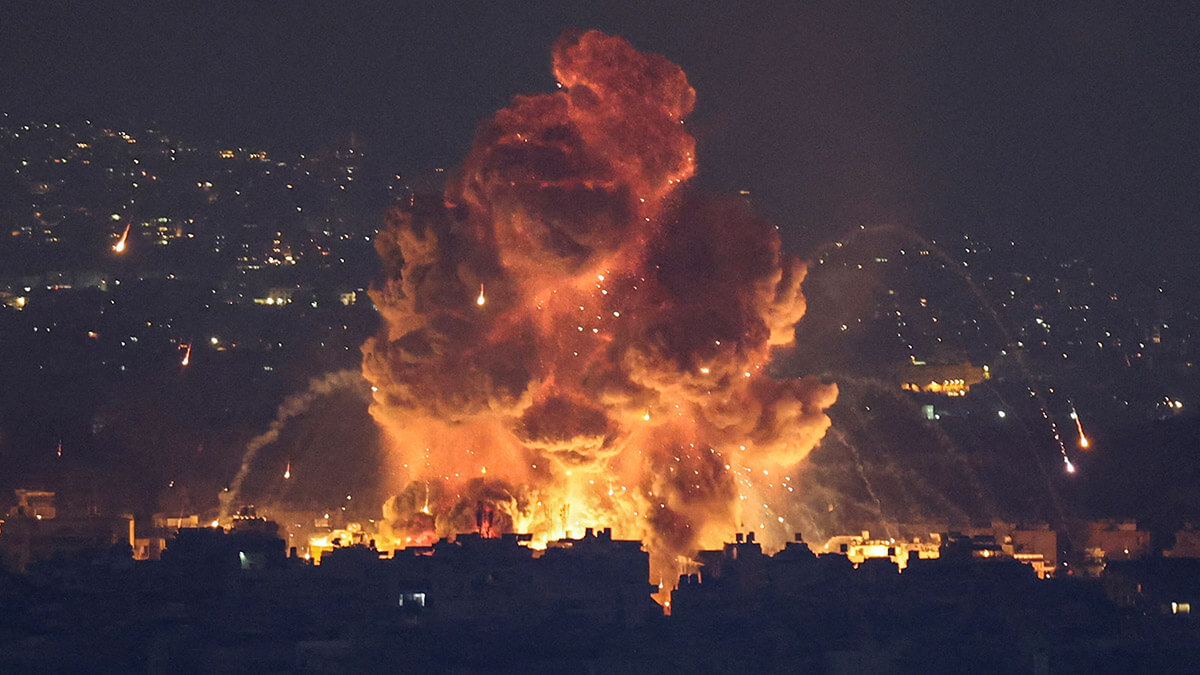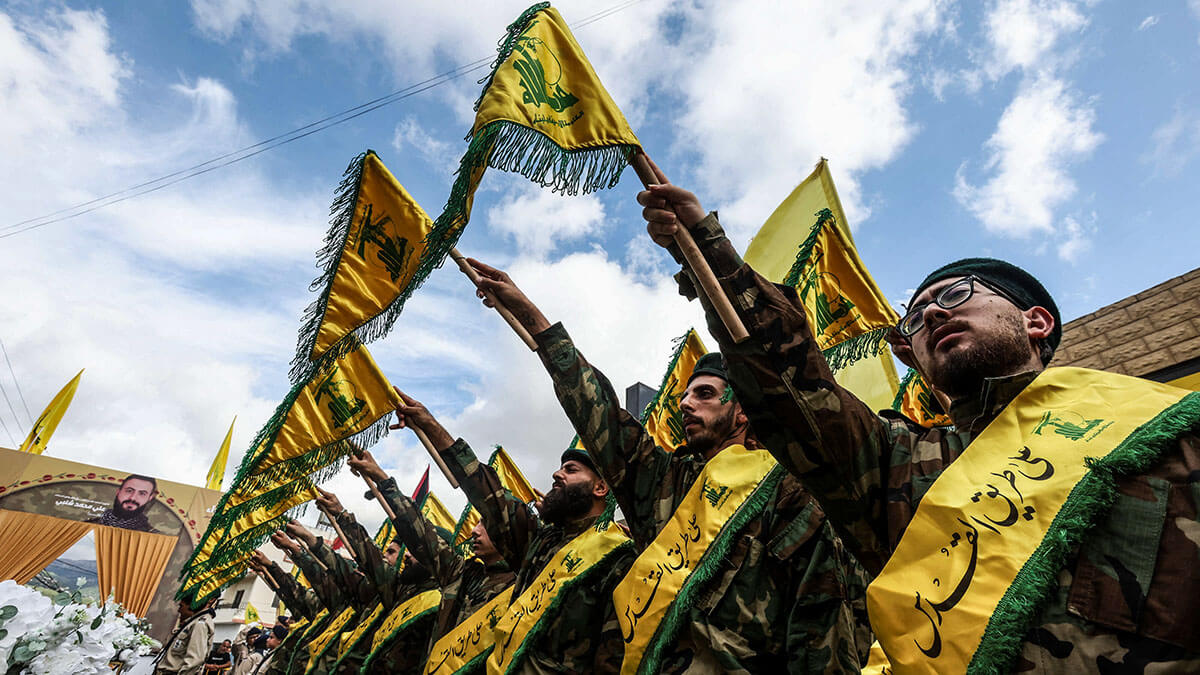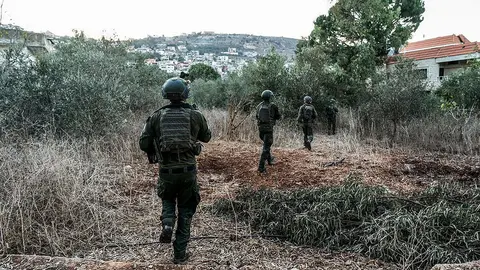Ceasefire between Israel and Hezbollah takes effect

On 8 October 2023, Hizbollah decided to go to war against Israel to support Hamas in the Gaza Strip. Nearly 14 months later, the Iranian-backed Lebanese Shiite militia has been forced to accept a ceasefire with Israel after significant military defeats, abandoning its Palestinian ally.
The truce, which began at 4 a.m., calls for the withdrawal of the Israel Defense Forces from southern Lebanon over the next 60 days. During this period, Hezbollah is to withdraw north of the Litani River, where Israeli troops conducted operations in recent hours for the first time since their withdrawal from Lebanon in 2000.
Once the 60-day disarmament period is over, Israel and Lebanon will negotiate the demarcation of the US-mediated border between the two countries, as there is currently a dividing line, the Blue Line, set by the UN after the 2006 war.
Hezbollah's withdrawal north of the Litani complies with UN Security Council Resolution 1701, established after the 2006 war. Instead, the Lebanese Army will deploy troops in the emptied area. As Israel Hayom reports, US troops under the command of the US Central Command (Centcom) will oversee and coordinate relations between Israeli and Lebanese forces during the first days of the agreement.
‘Unlike in the Second Lebanon War, here we are obliged to stay on the ground, observe what's going on and follow Hezbollah or other terrorist organisations,’ a US official told Israeli media outlet Ynet.

The UN peacekeeping mission in Lebanon, UNIFIL, will also be involved in monitoring, as will French troops. The agreement also provides for the creation of an international body, headed by the United States, to supervise compliance with the ceasefire, which will also involve four other countries, the United Kingdom, Germany, France, and possibly a fifth Arab country.
With the agreement in force, Hezbollah and all other armed groups on Lebanese territory will not launch attacks against Israel, which will not carry out any offensive military action against targets in Lebanon. However, the agreement does not negate the right of Israel and Lebanon to exercise their right to self-defence.
The agreement also stresses that official security forces and the Lebanese Army will be the only entities allowed to carry arms or operate their forces in southern Lebanon. Any sale, supply and production of arms or arms-related materials to Lebanon will be under the supervision and control of the Lebanese Government. All unauthorised facilities for the production of arms and arms-related materials will also be dismantled.

For its part, Israel demands the freedom to attack Lebanon again if the agreement is breached on three grounds: the rearming of Hezbollah, the preparation of an attack on Israeli territory or the return of pro-Iranian militia members to the south of the country. Nor will it return Hezbollah prisoners captured during the conflict in Lebanon.
‘If Hezbollah violates the agreement and tries to arm itself, we will attack. If it tries to rebuild terrorist infrastructure near the border, we will attack. If it launches a missile, if it digs a tunnel, if it brings a truckload of missiles, we will attack,’ said Israeli Prime Minister Benjamin Netanyahu.
Before the ceasefire came into effect, the IDF launched several attacks in Daheih, central Beirut and other areas of Lebanon, including the Syrian border. Hezbollah also attacked northern Israel.
Hours after the ceasefire came into effect people are returning to Dahieh. Many are in a celebratory mood, waving flags, chanting, and firing into the air. The damage to the area is severe. pic.twitter.com/i7QgYPAbmZ
— Richard Salame (@rjsalame) November 27, 2024
US President Joe Biden has backed these statements, asserting that if Hezbollah or any other group breaks the agreement and poses a direct threat to Israel, ‘then Israel retains the right to self-defence under international law’.
In addition to the ceasefire agreement, the US has provided a number of assurances to Israel, such as the exchange of confidential information on violations of the agreement, including any Hizbollah infiltration of the Lebanese army.
Washington has also pledged to cooperate with Jerusalem to curb Iran's destabilising activities in Lebanon, including preventing the transfer of weapons from Iranian territory.
The Security Cabinet, this evening, in a 10-1 vote, approved the US proposal for a ceasefire arrangement in Lebanon.
— Prime Minister of Israel (@IsraeliPM) November 26, 2024
Israel appreciates the US contribution to the process, and maintains its right to act against any threat to its security.
This agreement was approved in Israel's Security Cabinet with 10 votes in favour and one against, that of Security Minister Itamar Ben-Gvir.
In his speech, Netanyahu highlighted Israel's achievements during its war with Hezbollah, its worst confrontation since 2006. ‘We eliminated Nasrallah, we eliminated all of the organisation's senior officials and thousands of terrorists, and we destroyed most of the rocket launching capabilities and infrastructure it built near our border,’ recalled the Israeli prime minister, who also mentioned the destruction of the Shiite militia's underground infrastructure and strategic sites throughout Lebanon, including Beirut.
Netanyahu also alluded to Hamas, promising ‘victory’ and the ‘complete elimination’ of the terrorist group, as well as the return of the hostages still held hostage in Gaza.
Prime Minister Benjamin Netanyahu:
— Prime Minister of Israel (@IsraeliPM) November 26, 2024
"The length of the ceasefire depends on what happens in Lebanon. We will enforce the agreement and respond forcefully to any violation. We will continue united until victory."
Full remarks >>https://t.co/43nIjRoJQv pic.twitter.com/KiwT3ZKcog
Regarding the war in the Palestinian enclave, Biden also stressed that Hamas ‘now has to make a decision’. ‘The only way out of this is to free the hostages and end the fighting,’ he said. The US president also announced that in the coming days, with the help of his partners, Egypt, Turkey and Qatar, he will try to push for a ceasefire agreement in Gaza.
Shortly after the ceasefire between Israel and Hezbollah came into effect, Hamas has said it is ready to reach a truce in Gaza. ‘We have informed the mediators from Egypt, Qatar and Turkey that Hamas is ready for a ceasefire agreement and a serious agreement for a prisoner exchange,’ a member of the Palestinian group told AFP.










